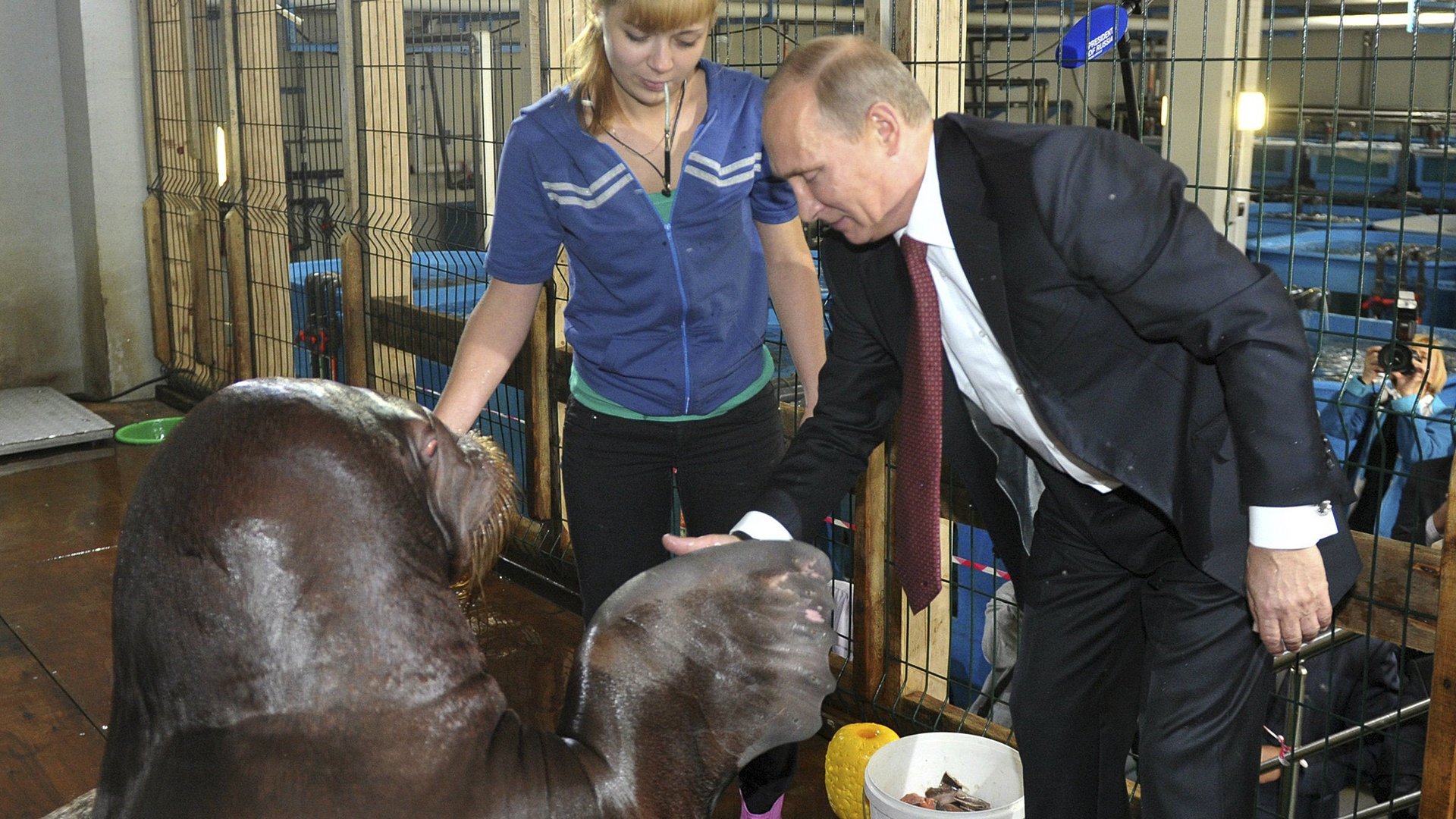Putin, flush with gas profits, is ready to pick some more fights
For a couple of years, analysts have been forecasting a more subdued Russia because of its declining natural gas fortunes. But the heads of the world’s largest economies will be misled if they count on a toned-down President Vladimir Putin when they gather in St. Petersburg on Sept. 5-6. That’s because Russian gas exports—a pillar of state income–have roared back and may continue to do so.


For a couple of years, analysts have been forecasting a more subdued Russia because of its declining natural gas fortunes. But the heads of the world’s largest economies will be misled if they count on a toned-down President Vladimir Putin when they gather in St. Petersburg on Sept. 5-6. That’s because Russian gas exports—a pillar of state income–have roared back and may continue to do so.
In 2012, Gazprom, Russia’s natural gas behemoth, did what it said it never would—it rewrote long-term contracts to include a new pricing formula for European buyers. The culprit was the US shale gas revolution, which has been undercutting Russia in Europe, its main gas market. The new contracts forced Gazprom to rebate more than $3 billion to European customers including Germany’s E.ON Ruhrgas and Austria’s OMV. That hurt the Russian state budget, half of which is comprised of oil and gas export revenue.
Therefore, if you adhere to the usual rules of petropolitics, Putin should be behaving like a pussycat by now. These rules define a direct relationship between the price of hydrocarbons and the behavior of strongmen—when prices are high, autocrats are feisty; when prices drop, their behavior is warmer and fuzzier.
What we are seeing, however, is the feisty Putin. He is pushing back hard, for instance, against a US-led proposal to punish the Syrian government for its alleged use of chemical weapons against its opponents. President Barack Obama will be among world leaders heading to St. Petersburg for a G-20 Summit that starts tomorrow, and the fear (paywall) is that he and Putin will not speak civilly but instead simply stare fiercely into one another’s eyes.
Putin is likely to continue sharp resistance to plans by the European Union to form free trade agreements with former Soviet republics, in particular with Ukraine. He will also not easily agree to harsher oil sanctions against Iran should the US advocate them. And Putin will also strongly push back against European plans to file anti-trust sanctions against Gazprom.
One big reason for Putin’s boldness is that Gazprom has surprised the analysts. Russia’s shipments to Europe—where Gazprom obtains 55% of its revenue—rose to a three-year high in the first eight months of the year, to 105.2 billion cubic meters, a 14% increase over the same period in 2012, the company reported Sept. 3. Its first-quarter profit rose to $11.6 billion, a 5% increase from $10.8 billion in profit from the previous quarter.
In a note to clients, Sanford Bernstein analyst Oswald Clint says that part of Gazprom’s first-quarter bounty was a direct result of the contract negotiation. The key clause links gas and oil prices—when oil prices go up, so do gas prices, and vice versa. In the first quarter, Brent oil prices were 5% lower quarter-on-quarter while spot gas prices were up by 20%. As a result, Gazprom earned 2% more than it would have under the old system, Clint said.
Clint thinks that the trend favorable to Gazprom will continue as European gas demand keeps rising. The world, then, should not expect a friendlier Putin any time soon.